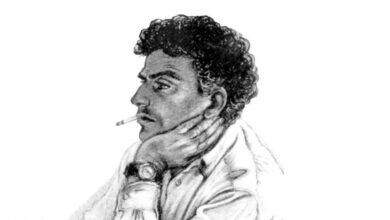Daisy Miller Henry James

Daisy Miller Henry James

Henry James (1843-1916), was born in New York. His father was a Swedish theologian, and his brother, the well-known psychologist William James, christened Henry James “stream of consciousness literature.” The first lessons, by 1855, After the family traveled through Europe, he continued his education in London, Paris and Geneva, enrolled in Harvard jurisprudence in 1862. As a writer, his beginnings were influenced by Hawthorne and George Eliot. spent his youth in Europe, where he was “infected” by the so-called “European virus.” He loved Europe so much that it was impossible for him to live anywhere else, so in 1898 he finally settled in London, where he died in 1916. , one year after becoming a British citizen.
During his European travels, he often visited Paris, where he was associated with writers such as Turgeniev and Flober. His study of Hawthorne is well known, in which he says that America does not offer much material to the writer: it has no history of rich, no monuments, institutions, works of art, no complex social situations and interesting experiences. For this reason Jane needed Europe and the Europeans, figures who appear in the service of the history of the class tradition and its environment. The European is more complicated and “spoiled” in the face of the pure and virgin American, often more limited but morally more spontaneous. James Americans in contact with Europe develop or are destroyed. The international theme is directly related to the writer’s concern, human consciousness, as well as the moral and psychological aspects of his experience.
James is not intrigued by the outside world, but by the way it manifests itself in the consciousness of his heroes. Though it seems to be made up of a multitude of concrete, external details, James’s world first and foremost, an inner world of emotions and thoughts, becoming close to the world of the great modern authors who would follow it. His moral sense is a very elaborate sense of the motives of human behavior, of the relationship between freedom and violence, good and evil.
Meanwhile, he does not think that the novel should have “a conscious moral purpose”. For him, the greatest values of the work of art depend on the spiritual values and intelligence of the writer. The novel is born as a result of strong, direct impressions, which are the fruit “of deep sensitivity, of a kind of spider webs, the best threads of which, lying in the space of consciousness, are able to hold on to the surface own even the smallest bit they encounter.
Particular realism belongs to the psychological one. His characters observe life rather than experience it: we are interested in knowing how their minds respond to the events of the story, how they try to understand the events. Through his many works, Henry James sought to be a sensitive writer, with a deep understanding of human character and motivation. He is more of an observer of the mind than a recorder of time: the emphasis falls on the process that takes place in human consciousness and not on the event. The events often seem insignificant, limited, but, in the structure of the work, they often take on a symbolic meaning and express the state of the whole civilization.
It is worth remembering the meanings of the names of the two main characters in the book that we have in hand: Daisy (Daisy) means “poppy”, while Winterborn (Winterbourne) “stream that comes after the storms in winter”.
The intricate and multiple style of his prose also appears in Daisy Miller, one of his early masterpieces.






